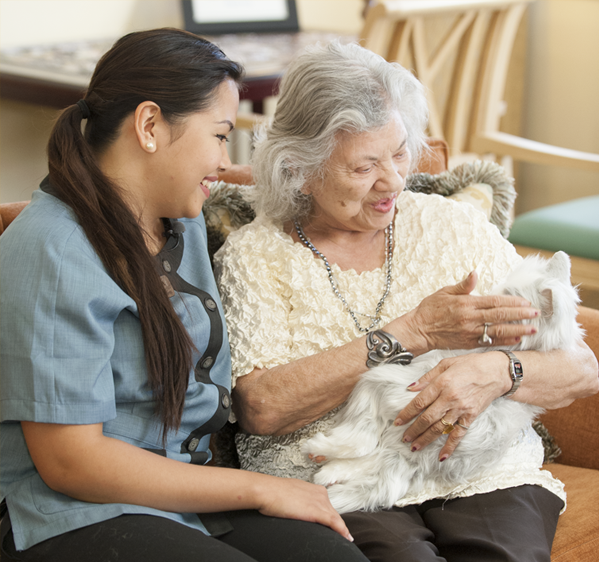Tips to Improve Empathetic Care Practices

Empathy is being able to put yourself in someone else's shoes for a while so you can imagine what they are going through, leading to a deeper understanding of their feelings and behaviors.
Empathy is a personal quality and an acquired skill that every care partner can learn and express.
Empathetic care is associated with:
- Improved care-receiver and provider satisfaction scores
- Positive outcomes
- Staff retention
- Enhanced well-being
- Improved communication and relationships with families
- Strong provider reputation
- Improved quality of life and care
When care team members act with empathy, they carry it out as:
- Going beyond expected job duties
- Emotional engagement
- Rich relationships
Here are some tips to improve empathetic care practices:
- Make eye contact. This helps build trust and conveys attentiveness.
- Strive to have a calm and soothing voice.
- Express concern and care through facial expressions. Remember that anger and stress can be detected through the "tone" of our expressions.
- Observe your body language and that of your care partner's. Clenched teeth, stiffened posture or closed arms might convey stress. By tuning into changes in body language, care partners will be more aware of how their own emotions are conveyed to others.
- Validate their feelings by expressing concern and understanding. An example is using a phrase like "I understand that the noise is very distressing", or "you look sad when you say that". This allows the care partner to feel and heard and understood.
- It's okay to relate your own emotions, especially if it is the context of validating another's feelings. By acknowledging and expressing your own feelings, this helps build trust between care partners.
- Accept that one's emotions are theirs and they are real to them. Don't try to counter their feelings with fact. Instead try to identify with their emotions.
- Be willing to accept what is in the moment, especially for people living with dementia.
When practicing empathetic care it is more than tending to physical needs, but includes an holistic approach of also caring for one's emotions. Research supports that higher caregiver empathy leads to improve quality of care and satisfaction from care partners and their families.
AGE-u-cate® Training Institute's Dementia Live® program inspires care partners to feel, think and act in ways that create an empathic, compassionate, respectful atmosphere to live, work and visit.



